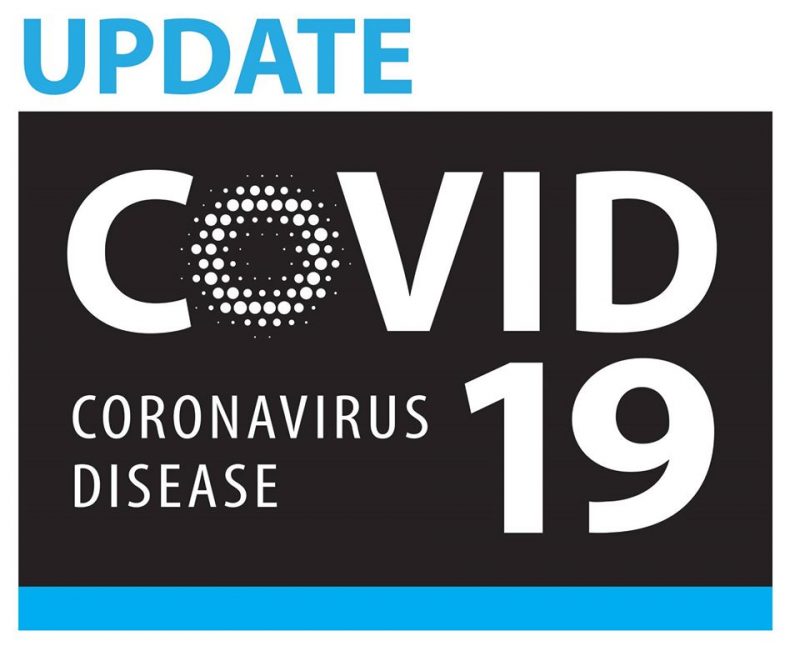COVID-19 cases continue to rise across the commonwealth, but in the Penn Highlands Healthcare region, the numbers remain stagnant.
At the time of this article, there are still only seven cases in Clearfield County, according to the Pennsylvania Department of Health Web site, www.health.pa.gov, which is updated daily around noon.
Officials for Penn Highlands Healthcare stated that none of the cases are in PHH hospitals. Two patients were treated, one at Elk and one at Huntington, but they were not admitted.
Dr. Shaun Sheehan, who heads the PHH Coronavirus Task Force, said that there have been rumors of people being admitted to hospitals for the virus because they have had people come in that have similar symptoms, and so they were put into isolation until the tests returned.
PHH has also conducted 585 swab tests and has slowly increased the number of those being tested.
Sheehan said they want to be testing people who are at a higher risk, such as those with chronic lung conditions, but they also need to keep in mind the limited number of testing swabs available.
He said the current turn-around time for test results is about three days, although that can vary due to the number of tests being sent out and other factors at the laboratories.
Sheehan was asked about Gov. Tom Wolf’s recent pronouncement that those going out in public should wear masks, including homemade, non-medical masks and whether that was something that would help.
Sheehan replied that the homemade masks are especially useful if you have the virus but are not yet aware of it.
For example, he said if you are in public and sneeze, despite your best efforts you will probably not be able to contain all the particles released from the sneeze, but a mask would catch those particles.
He said the cloth masks, however, will not keep you from getting the virus. One individual virus molecule is .3 microns in size, which is small enough to pass through non-medical grade masks.
When asked about a coming peak for cases, Sheehan said that it is something they are unable to predict for communities due to constantly-changing data points.
Good news includes the fact that visits to emergency rooms are down 40 percent in the PHH coverage area. Sheehan said more people are making the effort to call their doctors first, and are using telemedicine services and Q-Care services as well.
Sheehan spoke briefly about social distancing as well, saying that it is a term he is not in favor of, preferring instead “physical distancing.”
He said the term social distancing can be unhealthy for the psyche, and that it is possible to be social without being in contact with others.
Sheehan and Chief Operations Officer Mark Norman both stressed the need for blood donations at this time. Sheehan pointed out that while the country is experiencing a pandemic, other health problems still continue and many of those need blood and plasma donations.
Those needing donations are not necessarily trauma victims. They can include those with internal bleeding issues, blood production issues and others.
Sheehan stressed that COVID-19 is spread through respiratory droplets and not through blood, so giving and receiving blood is safe. He said blood drive workers are keeping volunteers separated and taking special care to clean each station between donors.
He said those with chronic illnesses also need to remember to continue to go to their doctor for regular appointments and to take care of themselves.
When asked about whether those who have had the virus are now immune, Sheehan stated, “What we do know is that we don’t know.”
He explained that with a novel virus, there are many unknowns. With some viruses the body creates immunity, and vaccines are used to create immunity as well.
But an annual influenza shot, he said, is needed as well because of the mutation of viruses, which can happen at different speeds.
With this virus it is unknown how fast it will mutate, if that mutation will increase or decrease or even burn itself out. He said the chances are good that it would produce an immunity, but there is no way of knowing how long that immunity would last.
Norman asked the community to continue doing all they can to control the spread and also thanked those who have made donations of personal protective equipment or monetary donations to help with the purchase of supplies.
He also noted that the hospitals within PHH are prepared for any surge and are able to move staff and equipment as needed. They are also in discussions with other hospitals to work together as needed.
